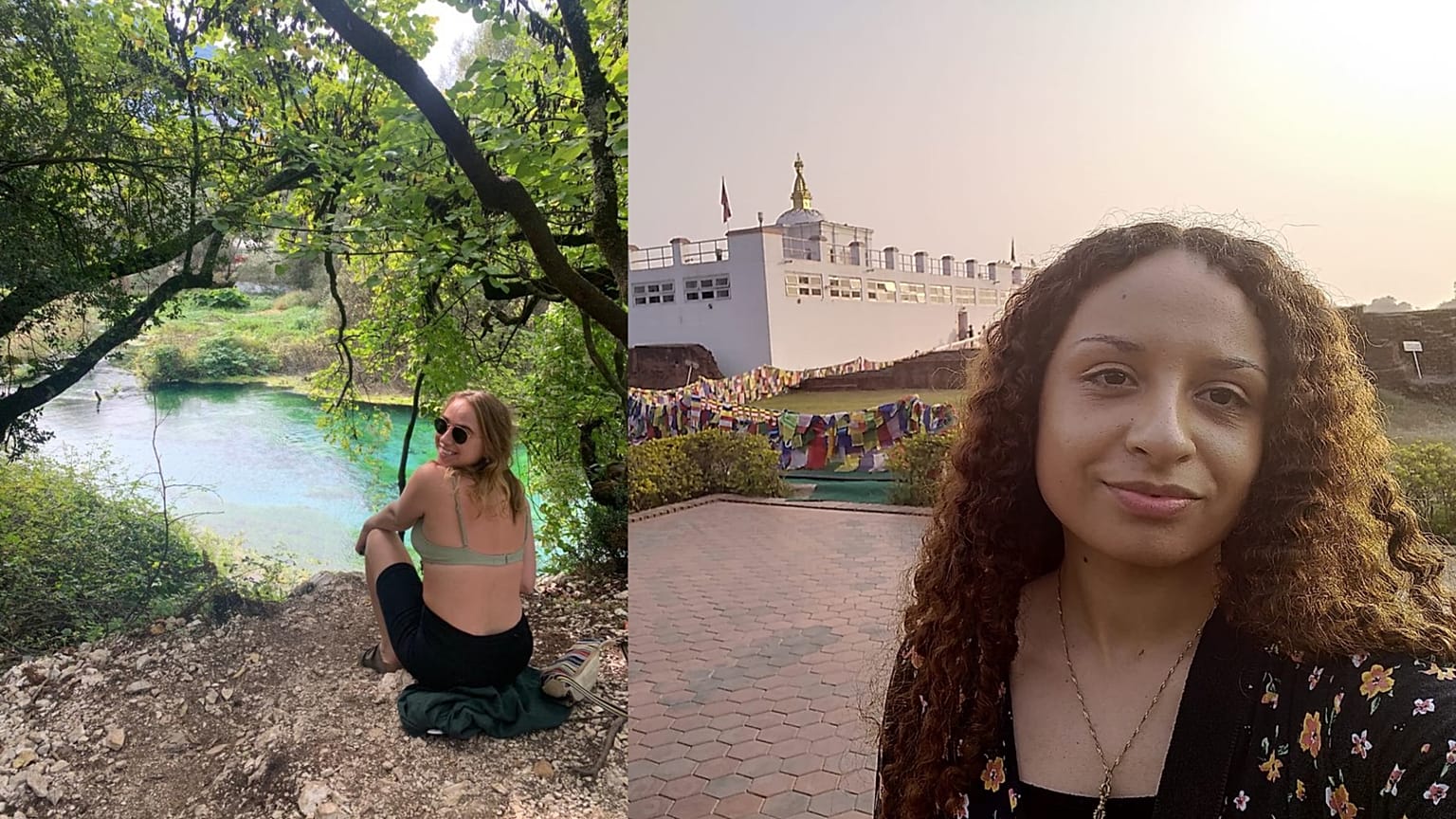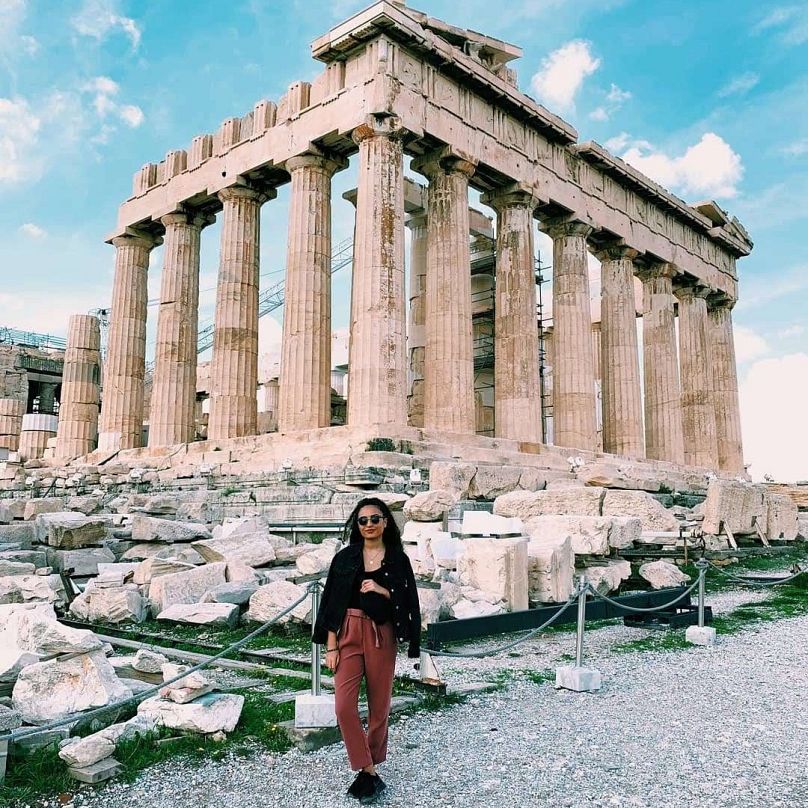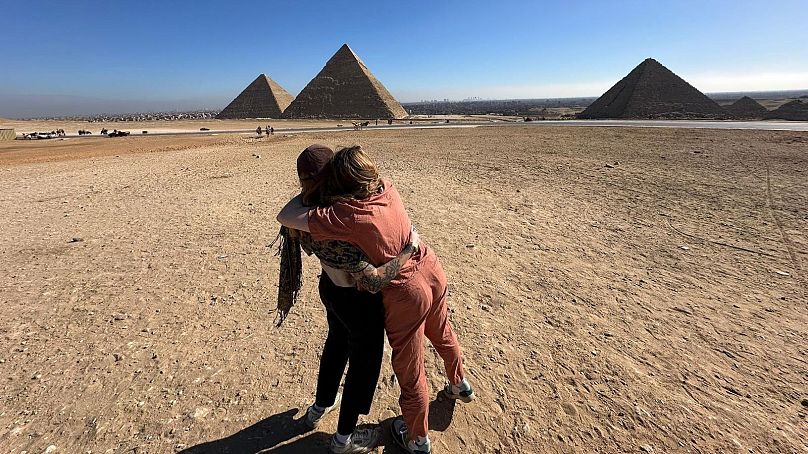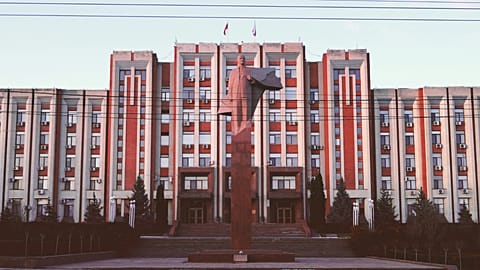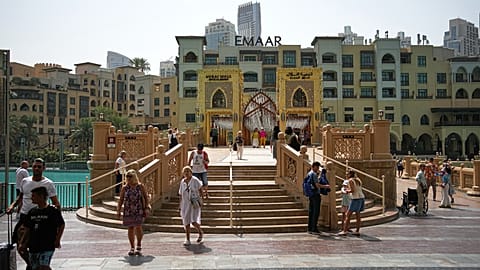In an epidemic of stress, burnout and loneliness, these young Europeans are incorporating travel into their self-care routine.
Travel is no longer a tick-box exercise, and is quickly becoming a “powerful remedy to the pressures of modern life”.
 ADVERTISEMENT
ADVERTISEMENT
 ADVERTISEMENT
ADVERTISEMENT
When we think of self-care, our brain tends to conjure up images of cosy pyjamas, hot bubble baths and face masks.
However, a new survey of more than 5,000 travellers across Europe has found that jetting off could help Millennials and Gen Z ease stress, combat loneliness and boost their overall well-being by allowing them to break away from their routine.
Erika De Santi, co-founder of WeRoad - which conducted the poll - says travelling has now become about the “whole journey” and not just visiting attractions.
“In a world that’s increasingly online, travel gives people something real again,” she tells Euronews Travel.
Meet the ‘self-care’ travellers
For Phoebe Thomas, a 29-year-old who lives in Cambridge, England, travel has always been a way to feel connected with people.
Uninspired by fly-and-flop style holidays in all-inclusive hotels, the 29-year-old prefers to curate her own holidays by booking multiple hotels or Airbnbs that offer more autonomous exploration.
She even backpacked aroundSoutheast Asia for three and a half months, never staying in one spot for more than a couple of days.
“It can feel physically draining doing that because a lot more planning goes into it and you’re having to constantly move around,” she says.
“But there’s something that feels quite mentally or emotionally nourishing by doing that, because it feels like I’m actually getting a sense of meaning out of the holiday.”
‘A form of therapy’
However, during the COVID pandemic, Phoebe’s mental health suffered, with lockdown restrictions leaving her experiencing depression and feeling “really disconnected from people”.
This led her to join the local Buddhist centre, where she was first introduced to spiritual retreats.
“They’re not the kind of retreats that you’d see in films, where it’s relaxing and spa-like,” she explains.
“Obviously there’s meditation and sometimes yoga and sound baths and all of those lovely things, but a lot of the time is spent working on your mind.”
In fact, Phoebe finds these retreats “intense and quite exhausting”, but now considers them a form of self-care.
“I was having therapy as well, at the same time, but it almost felt like a different kind of therapy,” she adds.
Now heading on around eight retreats a year – ranging from a few nights to two weeks – Phoebe credits the trips to having a more resilient mind and more positive thinking patterns.
She no longer suffers from bouts of depression that would come “every couple of months”, and feels like she can shut off from the stress and responsibility of work.
Phoebe still travels for leisure, often combining her spiritual retreats with the opportunity to explore Buddhist temples in India.
Disconnecting from daily stress
It’s clear Phoebe isn’t alone, with WeRoad’s survey finding that 88 per cent of respondents said travelling makes them happier and helps them disconnect from their daily stress.
When asked what travel would “treat” if it were a medicine, 34 per cent chose stress and anxiety, while 42 per cent cited routine and boredom - highlighting the link between travel and emotional wellbeing.
Almost half (41 per cent) admitted to feeling “sad” or found it hard to return to their routine following a trip.
A 'need to escape'
Marianne Mooney, who works in politics, relates to the post-holiday blues and uses travelling as an emotional reset.
Strategically planning the majority of her holidays in the wintertime to escape symptoms of Seasonal Affective Depression (SAD), Marianne says travelling has significantly improved her mental health.
She tells Euronews Travel that travelling fulfils a “need to escape” that she doesn’t get from traditional forms of self-care like putting on a face mask.
“When I’m on holiday, it’s the only time my brain goes quiet,” she says.
“I’m not rushing around thinking about work or jobs that I need to do. It’s the only point where I’m sitting in the moment and actually enjoying it.”
After backpacking around South America for six months, Marianne now aims for around six holidays per year.
She enjoys being taken out of her home environment and adapting to other cultures, arguing that natural wonders such as mountains or waterfalls help her put her problems into perspective.
Doctor’s orders
Acknowledging the rising trend of self-care travel,Sweden’s tourist board recently launched a tongue-in-cheek campaign to become the world’s first country to be “prescribed by doctors”.
Leaning into its holistic culture and way of life, the country has collaborated with senior professor Yvonne Forsell to create the “Swedish Prescription”.
The campaign promotes activities unique to Sweden that have been shown to support both mental and physical health, such as recharging in forests to ease stress and getting a good night’s sleep due to the country’s lack of noise and air pollution.
“Here in Sweden, the sun won’t go down for 100 days,” Forsell says in the campaign’s promotional video.
“Just imagine what 24/7 light therapy could do for you. So get your doctor to prescribe Sweden and see what we can do for your wellness”.














